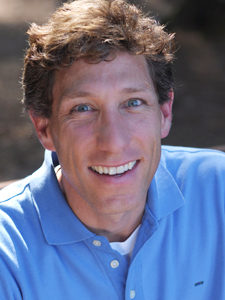Counselor-Camper Relationships: Navigating the Gray Area
When clinical psychologist and renowned camp industry consultant Chris Thurber worked with more than 50 camp employees at a training workshop in early July, his message was clear. The relationships between counselors and campers are grounded in camps’ missions. And camp counselors are in the unique position of making those missions come alive. That makes the counselor-camper connection the key to a successful summer.

Relationships With Campers Are Never Black and White
But working with kids can be tricky. Whether in a day or residential camp, counselors are faced with the challenge of building relationships with their campers while also remaining professional. Thurber entitled his presentation, held at Raymond’s Camp Wawenock, “Professional Youth Leader Boundaries: Find Your Way Through the Gray.” Relationships with campers are never black and white, can be as varied as the individuals involved. But Thurber, through discussion, examples, and guidance, helped pave a path for counselors working with campers in Maine.
“The relationships young people have with you is the ‘secret sauce’” to a positive summer at camp, Thurber explained. And counselors must “anchor what you do in the knowledge that you’re the most important thing at camp” when it comes to executing camps’ missions. For that reason, it is essential that the counselor-camper relationship is a healthy one, he said.
After querying participants about their camps’ missions, and describing counselors’ key roles in fulfilling those missions, Thurber and the group joined forces to outline what makes a healthy counselor-camper relationship. The list was thorough and descriptive: an ability to balance fun with enforcing camp policies; maintaining familiarity without disclosing too much personal information; practicing patience and empathy; being present for campers; demonstrating mutual respect; and remaining enthusiastic.

Surrogate Caregivers Have the Highest Expectations
The group then discussed specific aspects of the counselor-camper relationship. Thurber reminded counselors that as youth leaders, they have a legal duty of care. “As a surrogate caregiver, you have the highest expectations placed on you,” Thurber said.
Thurber also discussed the role of touch in working with campers. At one time, the guideline for counselors was to not touch campers in any place covered by a bathing suit, he said. Today, he said, context plays into the guideline, which states that campers should “touch children only in respectful ways that are appropriate to the context.” In instances where a counselor might have to touch a camper in a sensitive area, such as in ensuring that a climbing harness is tightened properly, Thurber said the key is communication. Counselors should describe what they are going to do, demonstrate the action on themselves, and then ask permission.
Thurber also discussed the question of setting limits with campers. Among the key pieces of advice were: stating expectations early; enforcing rules consistently; disciplining to teach, not punish; teaming up with colleagues as needed; and avoiding overstimulating campers.

The Duty of Care is Putting Kids’ Health and Safety a Priority
“Making kids your top priority doesn’t mean being super permissive,” Thurber said. “The duty of care is putting [kids’] health and safety as the top priority.”
“What if in the course of cultivating a relationship, the camper discloses mistreatment by another adult?” Thurber asked. Counselors are mandated reporters, he said, and have a duty to report such information, even if it is just a concern or suspicion, to camp leadership.
Sometimes campers ask their counselors if they can “keep a secret,” Thurber said. In such instances, counselors must be clear: they must tell campers that information can stay between the two of them “unless there is a concern about safety.” It is essential that counselors tell campers that in such cases, they will need to share information with other adults.
“If a kid says, ‘I’m not going to tell you,’ you say, ‘it’s your information, it’s your call. Part of my job is to ensure the health and safety of campers here. I can’t learn something dangerous without doing something about it.’”
“You can’t tell them you’ll keep a secret and then have to violate that,” Thurber said. “They’ve already been shattered; now you’re doing it again.”

Thurber Offered Four Strategies To Handle Sensitive Topics
Thurber also offered a variety of suggestions for handling other sensitive topics. He said four strategies are useful: responding without shaming; responding with an inquiry; offering a resource; and by setting a limit. Some questions are best handled by stating “that’s a complicated issue. Maybe not one to discuss at camp.”
Finally, Thurber reminded counselors of how to conduct themselves professionally at all times. One strategy is the “time-out test,” where a counselor asks him or herself the following question: “Is what I’m about to say or do going to raise the eyebrows of parents or directors?”
“Sometimes a well-intentioned action can make people uncomfortable,” he said.
Good Leaders Don’t Have To Insert Themselves Into the Action
Counselors must also take care of themselves, their image, and their camp, he said. They can help ensure that by spending their time off wisely, managing stress in healthy ways, asking for feedback, making all social media posts G-rated, and not friending or following any campers or anyone under age 18.
Thurber concluded the afternoon by reminding counselors that “sometimes the best leadership is ‘get out of the way’ leadership. You don’t necessarily have to insert yourself into the action,” he said.
“Your example is a great teaching tool,” he said. “But sometimes standing back is great, too.”